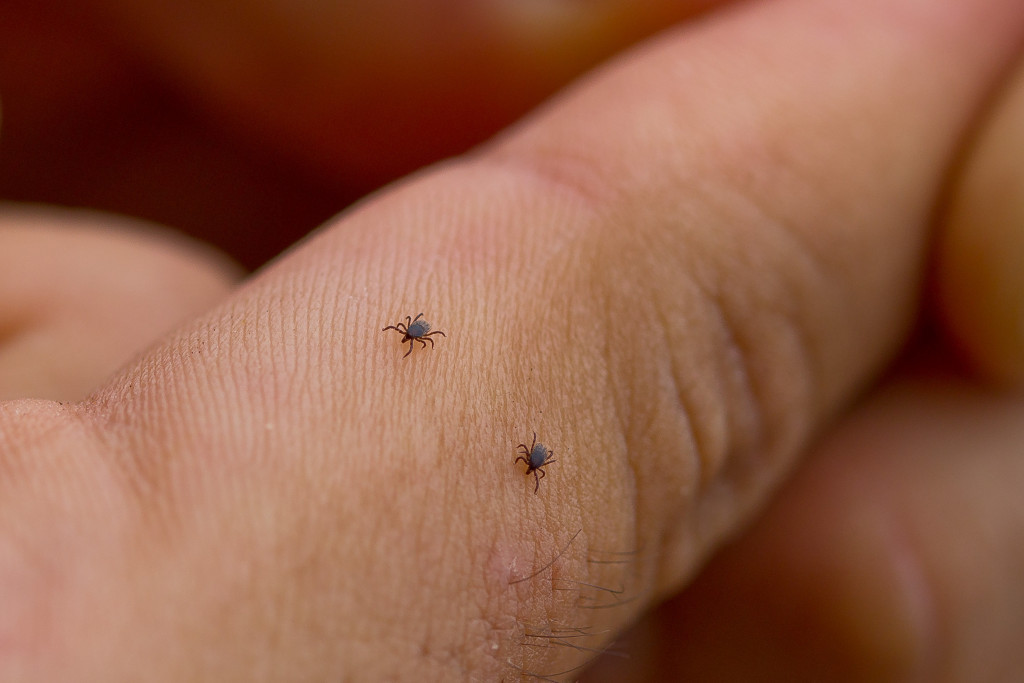- Lyme disease is a tick-borne illness affecting thousands of people worldwide, caused by Borrelia burgdorferi bacteria.
- Prevention measures include wearing protective clothing, checking for ticks regularly, using insect repellents with DEET concentration, and treating pets appropriately.
- Home remedies such as herbal teas and a balanced diet can help alleviate symptoms.
- If left untreated or inadequately treated, Lyme disease can cause severe and debilitating symptoms, so seek medical attention immediately if necessary.
Lyme disease is a tick-borne illness affecting thousands of people worldwide. According to the Centers for Disease Control and Prevention (CDC), there are an estimated 300,000 cases of Lyme disease reported each year in the United States alone – making it one of the most common vector-borne diseases.
The primary cause of Lyme disease is infection with Borrelia burgdorferi, a bacteria found in certain species of ticks. Those most likely affected by Lyme disease live or work where deer ticks are common, such as in grassy wooded areas or areas with tall brush.
Ticks can become infected when they feed on rodents and other animals carrying the bacteria and later transmit these infections to humans through their bites. In most cases, symptoms appear within 3-30 days after being bitten by an infected tick. Symptoms may include fever, headache, fatigue, skin rash (known as “erythema migrans”), and joint pain – but not everyone experiences all these symptoms.
Here are a few tips to help you fight against Lyme disease:
Seek Prevention

Lyme disease is a severe and sometimes debilitating illness that can be prevented with proper awareness and precautions. Taking the necessary steps to protect yourself and your family from this potentially life-altering infection is essential. Some simple steps can go a long way in avoiding unnecessary health risks. Here are four things to consider when fighting against Lyme disease.
Check for Ticks Regularly
When spending time outdoors, checking yourself, your children, and any pets you may have for ticks regularly is essential—ticks like stagnant areas of long grass, wet areas, and low-lying shrubs. When walking through tall grass or other areas where ticks could be hiding, it’s essential to wear protective clothing like long pants tucked into socks, closed shoes, long sleeves, and hats to help reduce the possibility of exposure to ticks. Additionally, always use insect repellent with at least 20% DEET concentration on exposed skin when outside.
Perform Tick Removal Quickly & Safely
Suppose you find a tick on yourself or someone else after spending time outdoors. It must be removed quickly and safely using tweezers or another tool specifically designed for tick removal (not your fingers!). Follow the manufacturer’s instructions closely when using tick removal tools. Removing a tick within 24 hours will significantly reduce the chance of contraction of Lyme disease – so don’t delay!
Treat Pets Appropriately
Pets are particularly susceptible to contracting Lyme disease due to their likely direct contact with ticks. The best way to avoid this is by treating them regularly with flea/tick prevention medications recommended by your veterinarian, such as Frontline Plus or K9 Advantix II, available over the counter at pet stores or from most vets’ offices. These medications should be applied monthly during the warmer months (spring through fall) when ticks are active outdoors to stay effective and minimize infection risk for pets and owners alike.
Stay Informed & Take Action
It’s also essential that everyone stays informed about the potential dangers posed by Lyme disease and takes appropriate action when needed. Many resources are devoted to telling people about this serious medical condition, including symptom recognition and available treatments for infection. Additionally, knowing what type of environment certain species of deer ticks thrive in can help you avoid being exposed in those areas if possible – such as wooded areas with tall grasses where deer frequent – thus reducing your chances even further of contracting Lyme disease if bitten by an infected tick.
Perform Home Remedies
Lyme disease can be treated with antibiotics. However, several home remedies may help alleviate the symptoms of Lyme disease.
One such remedy is to drink herbal teas. Herbal infusions like chamomile, ginger, peppermint, and lavender can help reduce inflammation in areas affected by Lyme disease. Drinking a cup of warm tea daily helps keep your body hydrated and reduces the inflammation that causes the pain associated with Lyme disease.
Eating a balanced diet is also essential for those suffering from Lyme disease. A healthy diet full of fruits and vegetables helps boost the immune system, which can aid in fighting off infection caused by Borrelia burgdorferi bacteria. Eating foods rich in Omega-3 fatty acids, such as salmon or sardines, can also help reduce swelling and stiffness associated with Lyme disease.
Additionally, getting plenty of rest is essential when dealing with Lyme disease. Getting at least eight hours of sleep nightly helps reduce fatigue and support the body’s healing process – both critical components for battling an infection.
Consult a Doctor

The consequences of not treating Lyme disease promptly can be grave, and if left untreated, it can cause severe and debilitating symptoms. It is important to note that the infection can spread to other parts of the body, including the brain, heart, and joints – leading to permanent damage or disability.
If left untreated for too long or treated inadequately with antibiotics or home remedies alone – it may become chronic and difficult to eradicate. Therefore, anyone suspected of contracting Lyme must consult a medical doctor for appropriate diagnosis and treatment.
Seeking early treatment from a medical professional familiar with this condition may help to reduce long-term health risks associated with Lyme disease through antibiotic therapy (for infections). Hyperthermia for Lyme disease (low-temperature heat therapy) is also ideal for persistent cases – particularly those involving nervous system involvement.
Final Thoughts
Lyme disease is a severe and potentially life-threatening illness that requires prevention and adequate treatment to reduce long-term health risks. You can help protect yourself and your family from contracting this vector-borne disease through appropriate awareness and precautions. If you are experiencing any symptoms associated with Lyme disease or are concerned about potential exposure, please seek medical attention immediately!
